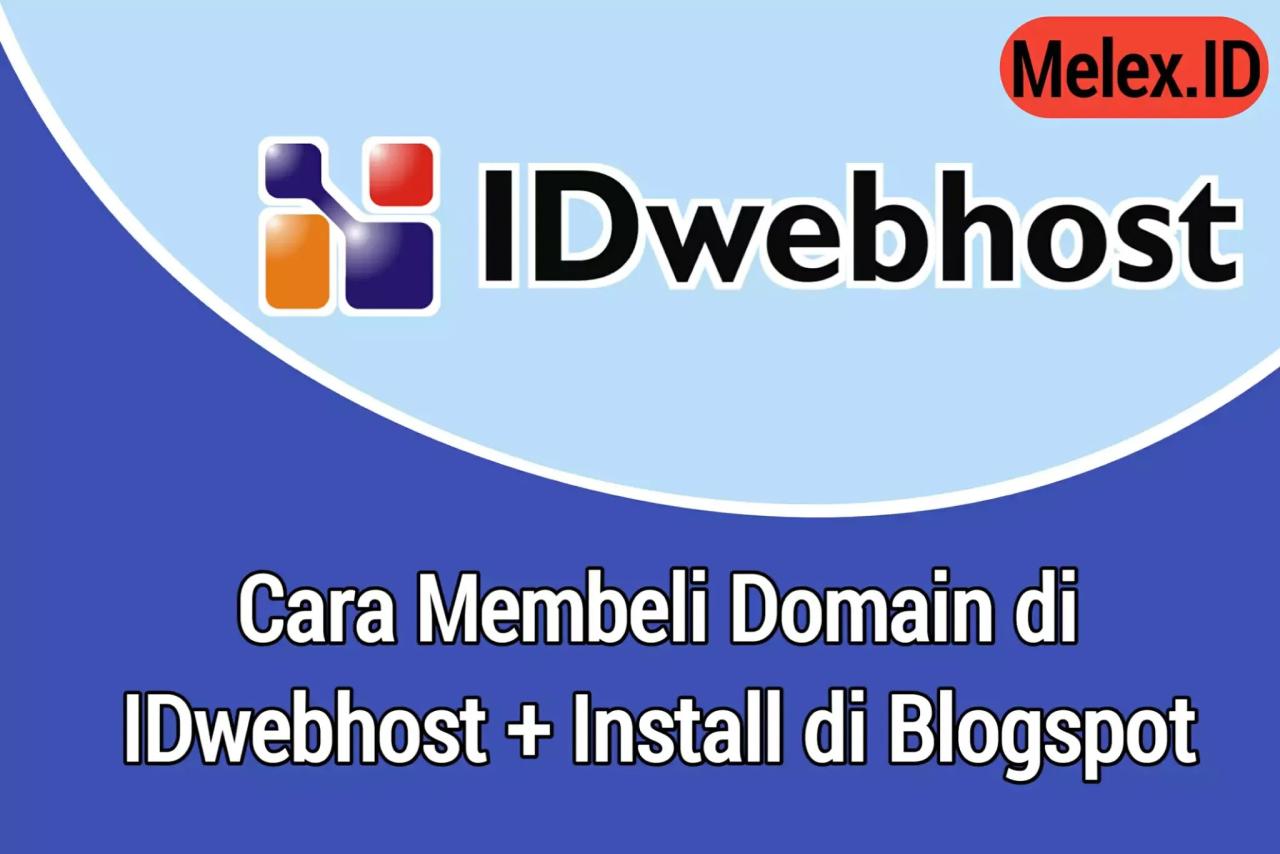Managed server hosting provides a dedicated and optimized environment for your website or application, offering greater control and performance compared to shared hosting. This approach involves a hosting provider taking care of server management tasks like security, updates, and backups, freeing you to focus on your core business operations.
Imagine having a team of experts managing your server infrastructure, ensuring its stability, security, and optimal performance. That’s essentially what managed server hosting offers. By outsourcing these responsibilities, you gain peace of mind knowing your website or application is running smoothly and efficiently, while you concentrate on what you do best.
What is Managed Server Hosting?

Managed server hosting is a type of web hosting where the hosting provider takes care of the server’s day-to-day operations, including server management, security, and maintenance. This allows businesses to focus on their core competencies, such as developing and delivering their products or services, without worrying about the technical aspects of server management.
Managed server hosting is a popular choice for businesses that require a high level of performance, reliability, and security. It is also a good option for businesses that do not have the in-house expertise to manage their own servers.
Key Features and Benefits
Managed server hosting offers a range of features and benefits, including:
- Server Management: The hosting provider handles all aspects of server management, including operating system updates, security patches, and hardware maintenance.
- Security: Managed server hosting providers typically implement robust security measures to protect servers from attacks and data breaches.
- Performance: Managed servers are often optimized for performance, ensuring that websites and applications load quickly and reliably.
- Scalability: Managed server hosting providers can easily scale resources up or down as needed, allowing businesses to meet changing demands.
- Support: Managed server hosting providers offer 24/7 technical support, ensuring that businesses can get help when they need it.
Types of Managed Server Hosting Solutions
There are several types of managed server hosting solutions available, including:
- Dedicated Server Hosting: A dedicated server is a physical server that is dedicated to a single customer. This provides businesses with the highest level of performance, security, and control.
- Cloud Server Hosting: Cloud server hosting uses a network of virtual servers to provide businesses with scalable and flexible hosting solutions.
- VPS Hosting: VPS hosting is a type of virtualized server hosting that provides businesses with a dedicated portion of a physical server. This offers a balance of performance, security, and affordability.
Advantages of Managed Server Hosting
Managed server hosting provides businesses with a powerful and reliable infrastructure, allowing them to focus on their core operations without worrying about server management. This type of hosting offers numerous advantages, especially for businesses of all sizes seeking a balance between performance, security, and cost-effectiveness.
Benefits for Businesses of Various Sizes
Managed server hosting provides a range of advantages for businesses of all sizes. Smaller businesses benefit from the scalability and cost-effectiveness of managed servers, allowing them to grow without the need for significant upfront investments in hardware and IT personnel. Medium-sized businesses can leverage the enhanced security and performance of managed servers to support their growing operations and ensure data protection. Large enterprises can rely on managed servers for high availability, scalability, and customized configurations to meet their demanding requirements.
Comparison with Shared Hosting and Cloud Hosting
Managed server hosting offers a distinct advantage over shared hosting and cloud hosting.
- Shared hosting, where multiple websites share the same server resources, often leads to performance issues and security vulnerabilities due to the shared environment.
- Cloud hosting, while providing flexibility and scalability, may not offer the same level of control and security as managed servers.
- Managed server hosting provides dedicated resources, ensuring optimal performance and security, while offering more control over the server environment than shared hosting or cloud hosting.
Advantages of Dedicated Resources and Control
Managed server hosting provides dedicated resources, giving businesses complete control over their server environment. This translates to:
- Enhanced Performance: Dedicated resources eliminate the performance bottlenecks associated with shared hosting, ensuring optimal speed and responsiveness for websites and applications.
- Improved Security: Managed servers offer enhanced security measures, including dedicated firewalls, intrusion detection systems, and regular security updates, protecting sensitive data from unauthorized access and cyber threats.
- Customization and Flexibility: Businesses have complete control over their server environment, allowing them to customize configurations, install specific software, and optimize performance to meet their unique needs.
- Scalability and Reliability: Managed servers can be easily scaled to meet growing demands, ensuring continuous availability and uninterrupted service, even during peak traffic periods.
Key Features of Managed Server Hosting
Managed server hosting offers a comprehensive package of features designed to streamline server management, enhance security, and ensure optimal performance. These features aim to alleviate the burden on businesses, allowing them to focus on their core operations while their hosting provider takes care of the technical intricacies.
Server Management
Server management is a crucial aspect of managed hosting, encompassing various tasks that ensure the smooth operation of your server.
- Operating System Updates: Managed hosting providers handle regular updates to your server’s operating system, ensuring compatibility and security patches are applied promptly.
- Software Installation and Configuration: They assist with the installation and configuration of essential software applications, such as databases, web servers, and other tools required for your website or application.
- Resource Allocation: Managed hosting providers optimize resource allocation for your server, ensuring sufficient CPU, RAM, and storage to meet your application’s demands.
- Performance Tuning: They proactively monitor and fine-tune server performance, identifying bottlenecks and implementing measures to improve efficiency.
Security
Security is paramount in today’s digital landscape, and managed hosting providers prioritize it by implementing robust security measures.
- Firewall Protection: Managed hosting providers typically deploy firewalls to filter incoming traffic, blocking malicious attempts to access your server.
- Intrusion Detection and Prevention: They employ intrusion detection and prevention systems to monitor network traffic for suspicious activity and take immediate action to mitigate threats.
- Regular Security Audits: Managed hosting providers conduct regular security audits to identify vulnerabilities and implement necessary safeguards.
- Data Encryption: They often implement data encryption measures to protect sensitive information stored on your server, ensuring confidentiality and integrity.
Backups
Data backups are essential for business continuity, and managed hosting providers offer comprehensive backup solutions.
- Regular Backups: They perform regular backups of your server’s data, ensuring that you have recent copies in case of data loss or corruption.
- Offsite Storage: Backups are typically stored offsite in a secure location, minimizing the risk of data loss due to server failure or disaster.
- Data Recovery: Managed hosting providers provide assistance with data recovery, helping you restore your data from backups in the event of an incident.
Monitoring, Managed server hosting
Continuous monitoring is essential to ensure server uptime and identify potential issues proactively.
- Server Health Monitoring: Managed hosting providers monitor key server metrics, such as CPU usage, memory consumption, and disk space, to detect any anomalies.
- Network Monitoring: They also monitor network performance, ensuring smooth data flow and identifying potential bottlenecks or connectivity issues.
- Security Monitoring: Monitoring systems often include security-specific features to detect and respond to potential threats, such as malware or unauthorized access attempts.
Technical Support
Managed hosting providers offer comprehensive technical support, providing assistance with various server-related issues.
- 24/7 Support: They often provide round-the-clock technical support, ensuring that you have access to help whenever you need it.
- Experienced Engineers: Managed hosting providers employ experienced engineers who are knowledgeable about server management, security, and troubleshooting.
- Proactive Support: They often proactively monitor your server for potential issues and provide assistance before problems escalate.
Choosing the Right Managed Server Hosting Provider
Choosing the right managed server hosting provider is crucial for the success of your website or application. A good provider will offer reliable performance, excellent customer support, and features that meet your specific needs.
Factors to Consider When Selecting a Managed Server Hosting Provider
Before choosing a provider, it’s important to consider several factors to ensure a good fit for your business.
- Pricing: Managed server hosting comes in various pricing models. It’s essential to choose a provider that offers a pricing plan that fits your budget and provides the resources you need.
- Performance: Performance is critical for a website or application. Consider factors like CPU speed, RAM, and storage capacity. Choose a provider that offers the performance you need to ensure a smooth user experience.
- Reliability: Website uptime is crucial for any business. Choose a provider with a proven track record of high uptime and reliable infrastructure. Look for providers that offer redundancy and disaster recovery services.
- Customer Support: Good customer support is essential. Look for a provider that offers 24/7 support, multiple communication channels, and knowledgeable staff who can quickly resolve any issues.
- Security: Security is paramount for any website or application. Choose a provider that offers robust security features, such as firewalls, intrusion detection systems, and regular security updates.
- Scalability: As your business grows, you may need to scale your server resources. Choose a provider that offers scalable solutions to accommodate your future needs.
- Features: Consider the specific features offered by different providers. Some providers offer additional features such as content delivery networks (CDNs), load balancers, and backups.
Pricing
Pricing is a major consideration when choosing a managed server hosting provider. Providers offer various pricing models, such as:
- Pay-as-you-go: This model allows you to pay for only the resources you use. This is a good option for businesses with fluctuating resource needs.
- Fixed monthly fee: This model offers a predictable monthly cost, making budgeting easier. It’s a good option for businesses with consistent resource needs.
- Bundled packages: Some providers offer bundled packages that include a combination of resources and features. This can be a cost-effective option for businesses with specific needs.
When comparing pricing plans, consider the total cost of ownership, including the price of the server, any additional fees, and the cost of managing the server.
Performance
Website performance is crucial for user satisfaction and search engine rankings. Several factors affect server performance, including:
- CPU speed: A faster CPU can handle more requests, resulting in faster website loading times.
- RAM: More RAM allows the server to process more data simultaneously, improving performance.
- Storage capacity: Ensure sufficient storage space for your website files, databases, and other data.
- Network bandwidth: Adequate bandwidth is essential for fast website loading times, especially if you receive a lot of traffic.
Reliability
Website uptime is essential for any business. A reliable managed server hosting provider will ensure that your website is always available to your users. Look for providers that offer:
- High uptime guarantees: A high uptime guarantee ensures that your website will be available for a certain percentage of the time.
- Redundant infrastructure: Redundant infrastructure ensures that your website remains available even if one component fails. This includes backup servers, power generators, and internet connections.
- Disaster recovery services: Disaster recovery services ensure that your website can be restored quickly in the event of a disaster, such as a fire or natural disaster.
Customer Support
Good customer support is essential for a smooth managed server hosting experience. Look for a provider that offers:
- 24/7 support: 24/7 support ensures that you can get help anytime, day or night.
- Multiple communication channels: Multiple communication channels, such as phone, email, and live chat, provide flexibility for contacting support.
- Knowledgeable staff: Knowledgeable staff can quickly resolve any issues and provide helpful advice.
- Response time: Look for a provider with a quick response time to ensure that your issues are resolved promptly.
Choosing the Right Provider Based on Specific Business Needs
When choosing a managed server hosting provider, consider your specific business needs:
- Small businesses: Small businesses may need a basic managed server hosting plan with limited resources and a low price point.
- Medium-sized businesses: Medium-sized businesses may need a more robust managed server hosting plan with greater resources and more advanced features.
- Large enterprises: Large enterprises may need a highly customized managed server hosting solution with dedicated resources and specialized support.
Setting Up and Managing a Managed Server
Setting up and managing a managed server is a relatively straightforward process thanks to the expertise of the hosting provider. You’ll collaborate with them to configure your server, install necessary software, and implement security measures. The provider handles the technical complexities, allowing you to focus on your core business operations.
Server Configuration and Initial Setup
The initial setup of your managed server involves several steps:
- Choosing a server operating system: You’ll select the operating system that best suits your application’s needs, such as Linux or Windows. The provider will guide you through the process.
- Installing software: The provider will install the necessary software for your application, such as databases, web servers, and programming languages.
- Configuring server settings: You’ll work with the provider to configure various server settings, such as security protocols, network configurations, and resource allocation.
- Setting up security measures: Security is crucial. Your provider will help you implement robust security measures, such as firewalls, intrusion detection systems, and regular security updates.
- Testing and deployment: Once the server is configured, it will be thoroughly tested to ensure stability and performance before your application is deployed.
Managing Your Server Effectively
Managing your managed server effectively requires ongoing attention to security, performance, and resource utilization:
- Regular security updates: Keep your server’s operating system and software updated to patch vulnerabilities and mitigate security risks.
- Monitoring server performance: Use monitoring tools to track key metrics like CPU usage, memory consumption, and disk space. This allows you to identify potential performance bottlenecks and address them proactively.
- Optimizing server resources: Optimize resource allocation to ensure your application runs smoothly and efficiently. This might involve adjusting server configurations, scaling resources, or upgrading hardware.
- Regular backups: Implement a regular backup strategy to protect your data from unforeseen events, such as hardware failures or cyberattacks.
- Collaborating with your provider: Maintain open communication with your hosting provider to discuss any concerns, request support, and leverage their expertise for ongoing management and optimization.
Monitoring Server Performance and Troubleshooting
Monitoring server performance is essential for identifying potential issues before they impact your application. You can use tools provided by your hosting provider or third-party monitoring services to track key metrics:
- CPU usage: High CPU usage can indicate a performance bottleneck or resource-intensive processes running on your server.
- Memory consumption: Monitor memory usage to ensure your application has enough resources and prevent memory leaks.
- Disk space: Track disk space usage to avoid running out of storage and ensure your server can accommodate your data and applications.
- Network traffic: Monitor network traffic to identify potential bottlenecks or security threats.
In case of performance issues, you can work with your hosting provider to troubleshoot the problem. They can analyze server logs, review configurations, and identify the root cause of the issue.
Final Wrap-Up
Managed server hosting empowers businesses of all sizes to unlock the full potential of their online presence. By choosing the right managed server hosting provider and leveraging its features, you can achieve greater performance, security, and scalability, ultimately driving success for your organization. Whether you’re launching a new e-commerce store, building a complex web application, or managing a critical database, managed server hosting provides a reliable and robust foundation for your digital endeavors.
Managed server hosting offers the power and control you need for demanding applications, but sometimes you need to organize your own digital world. Just like you might build DIY shelving to optimize your home, managed server hosting lets you tailor your infrastructure for maximum efficiency and performance.
Whether you’re managing a website, running a database, or hosting a complex application, a managed server gives you the flexibility and resources to keep your digital world running smoothly.




